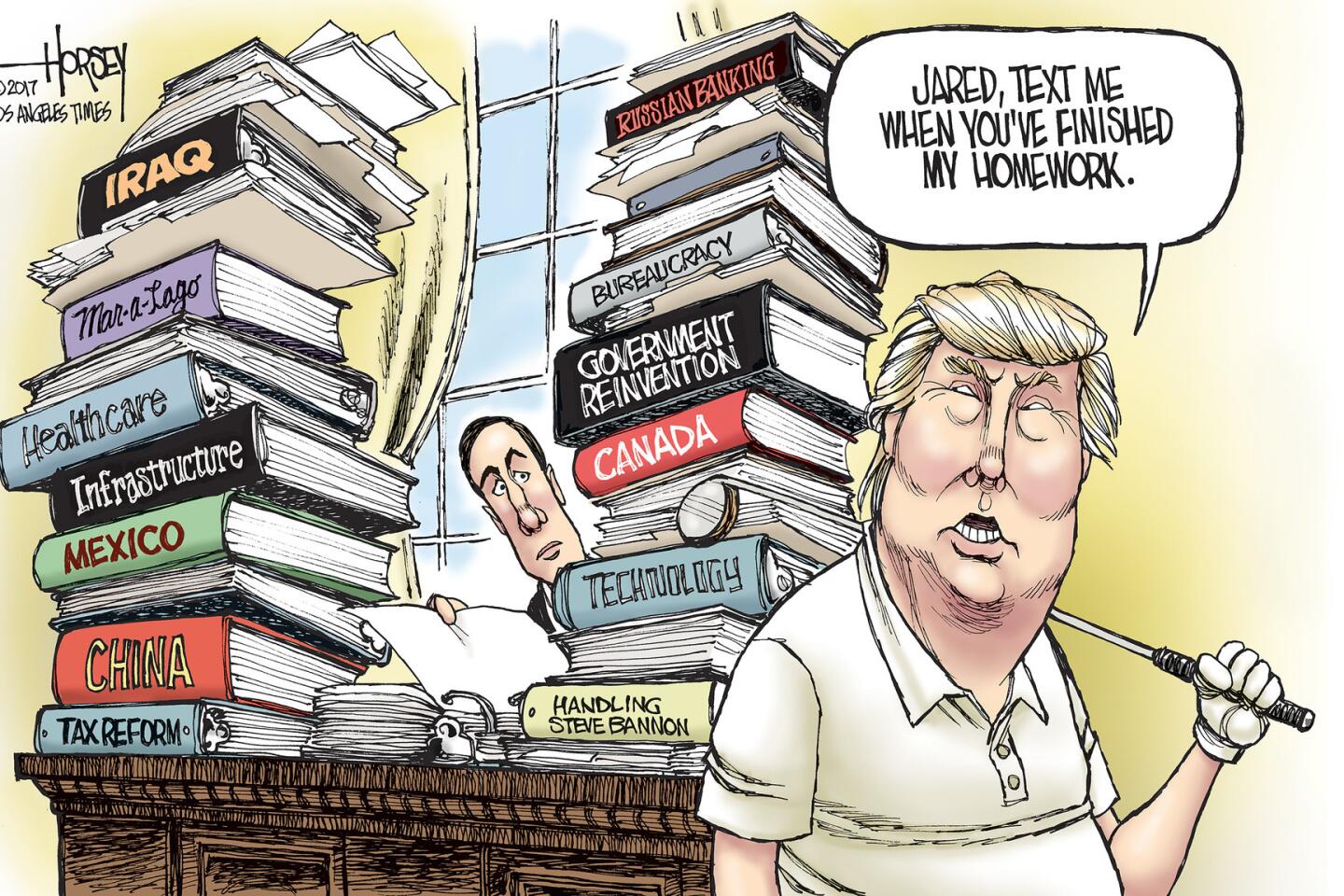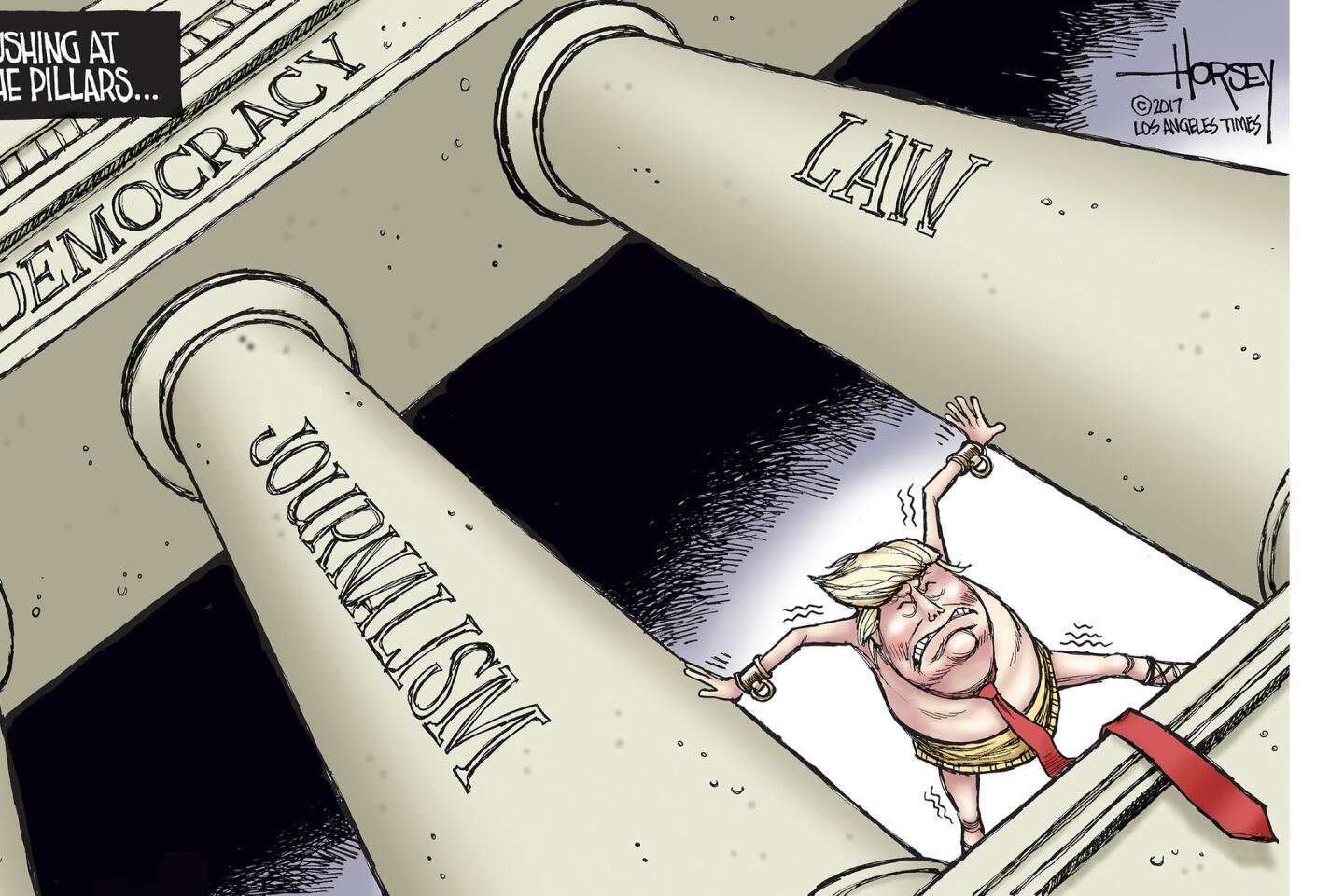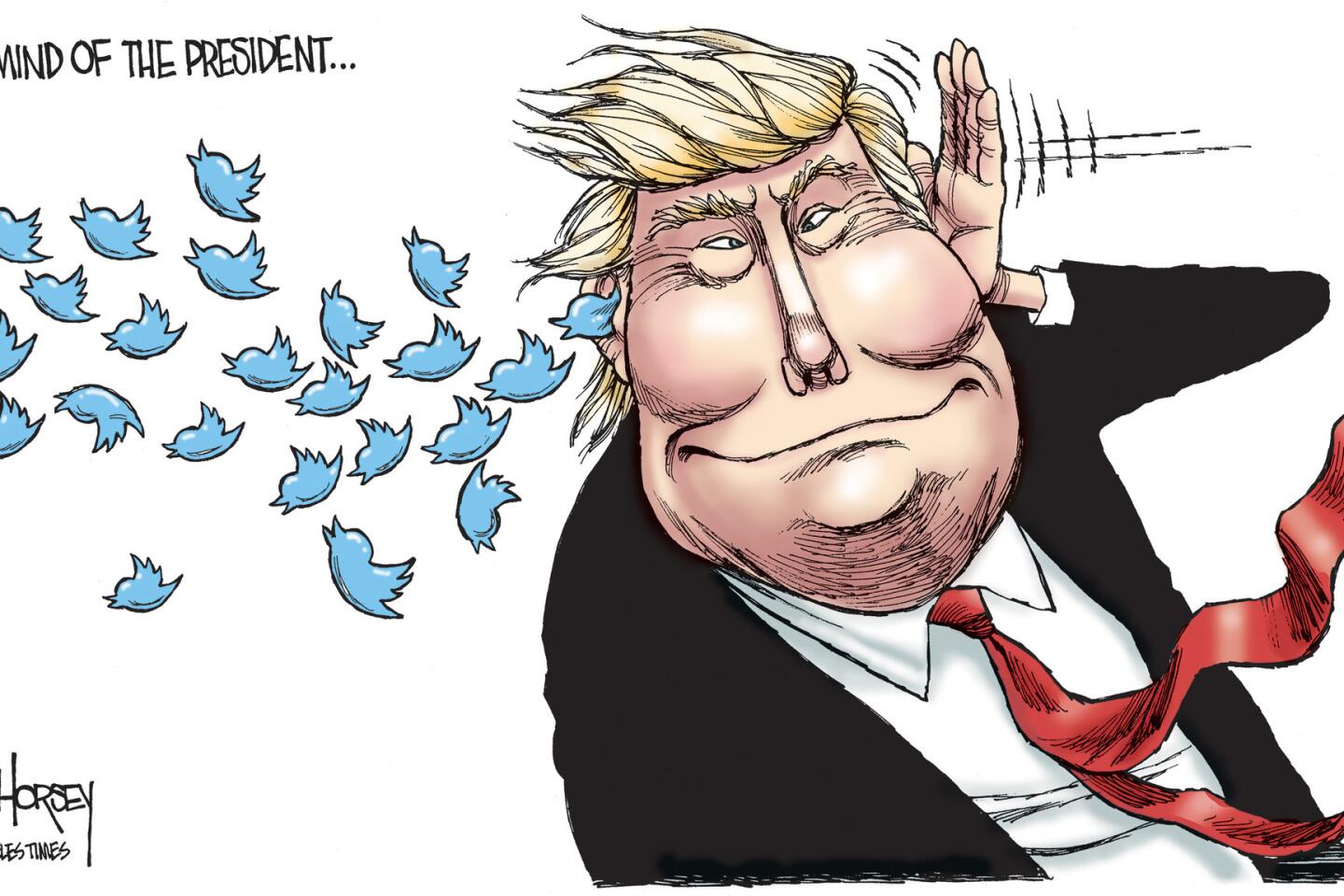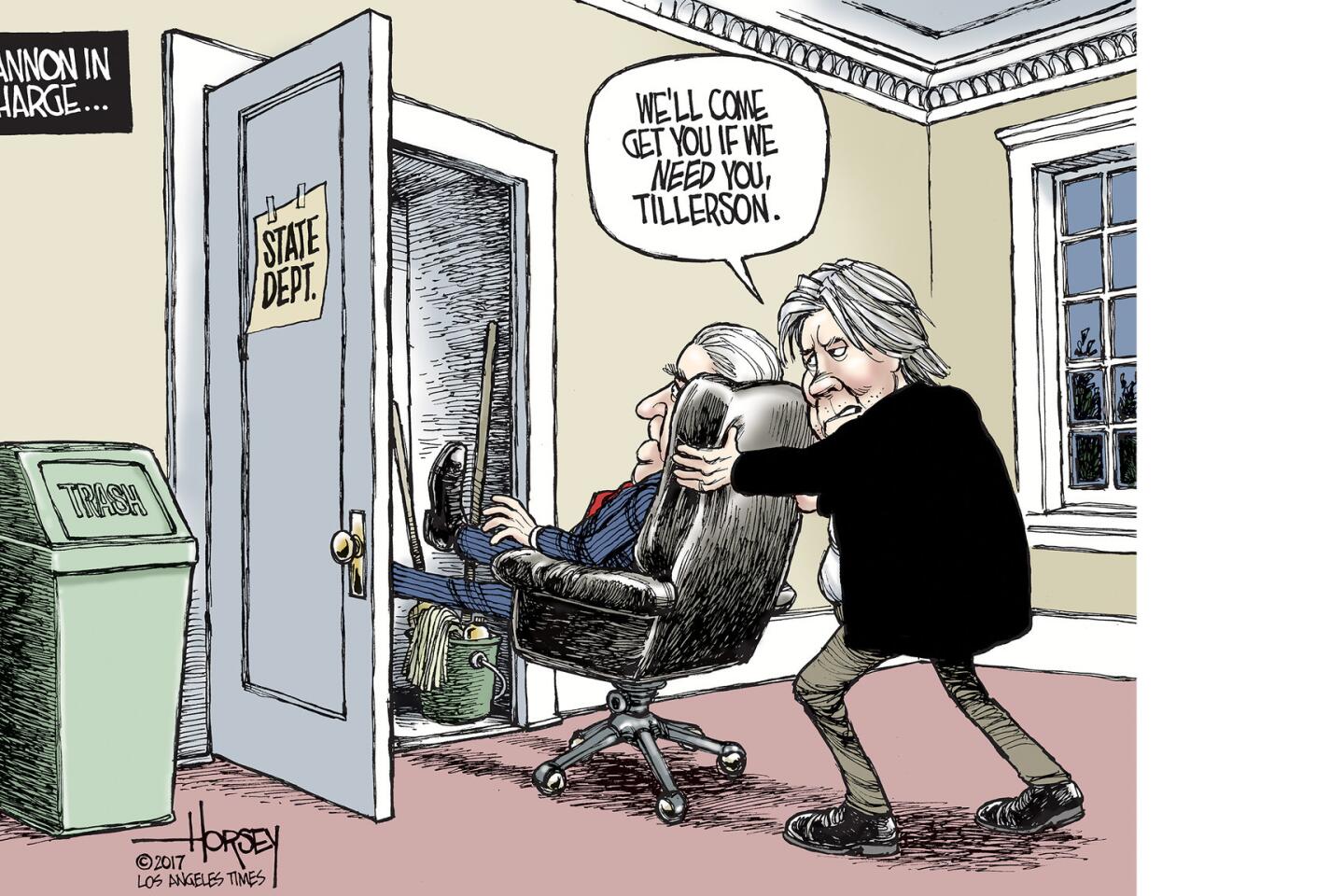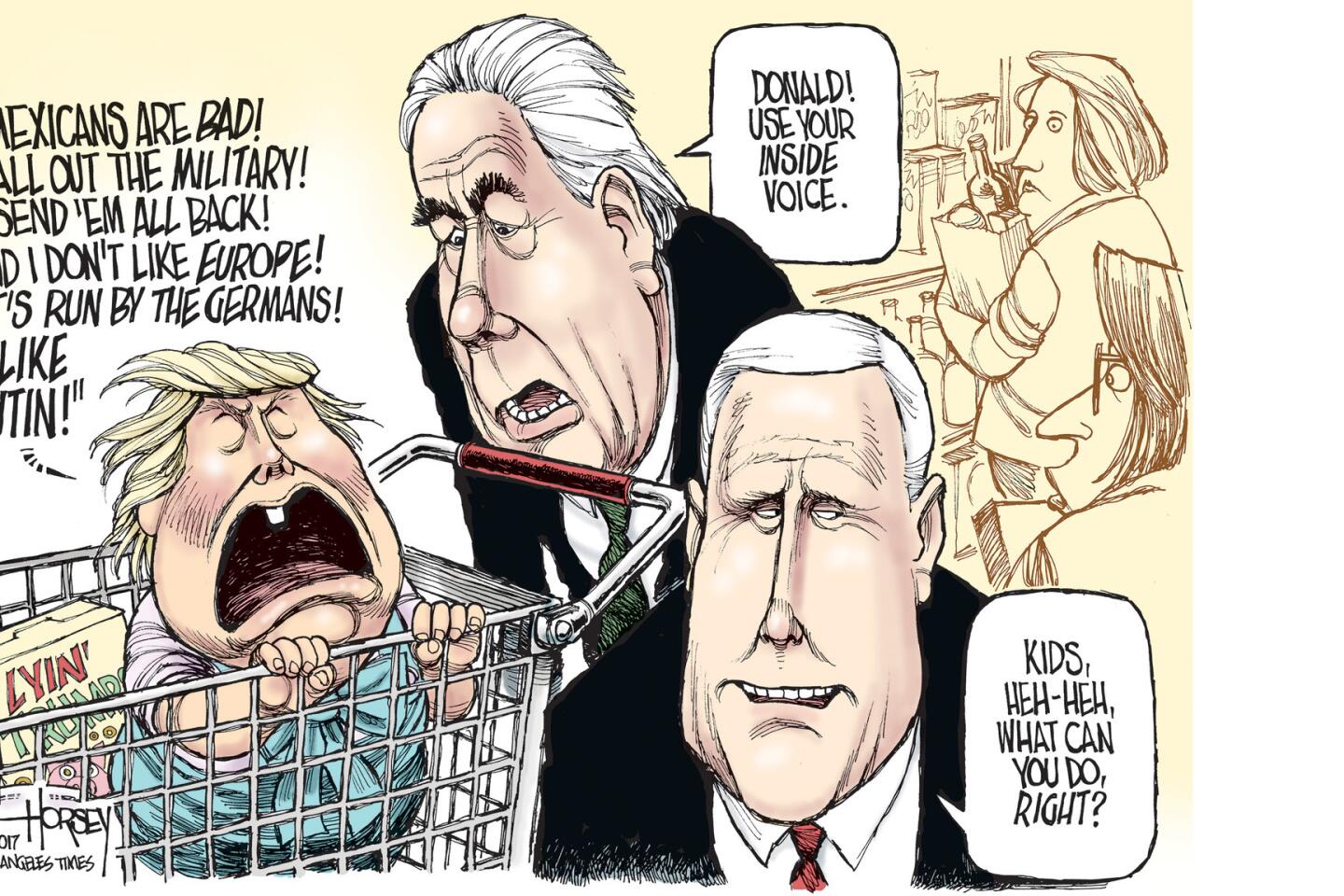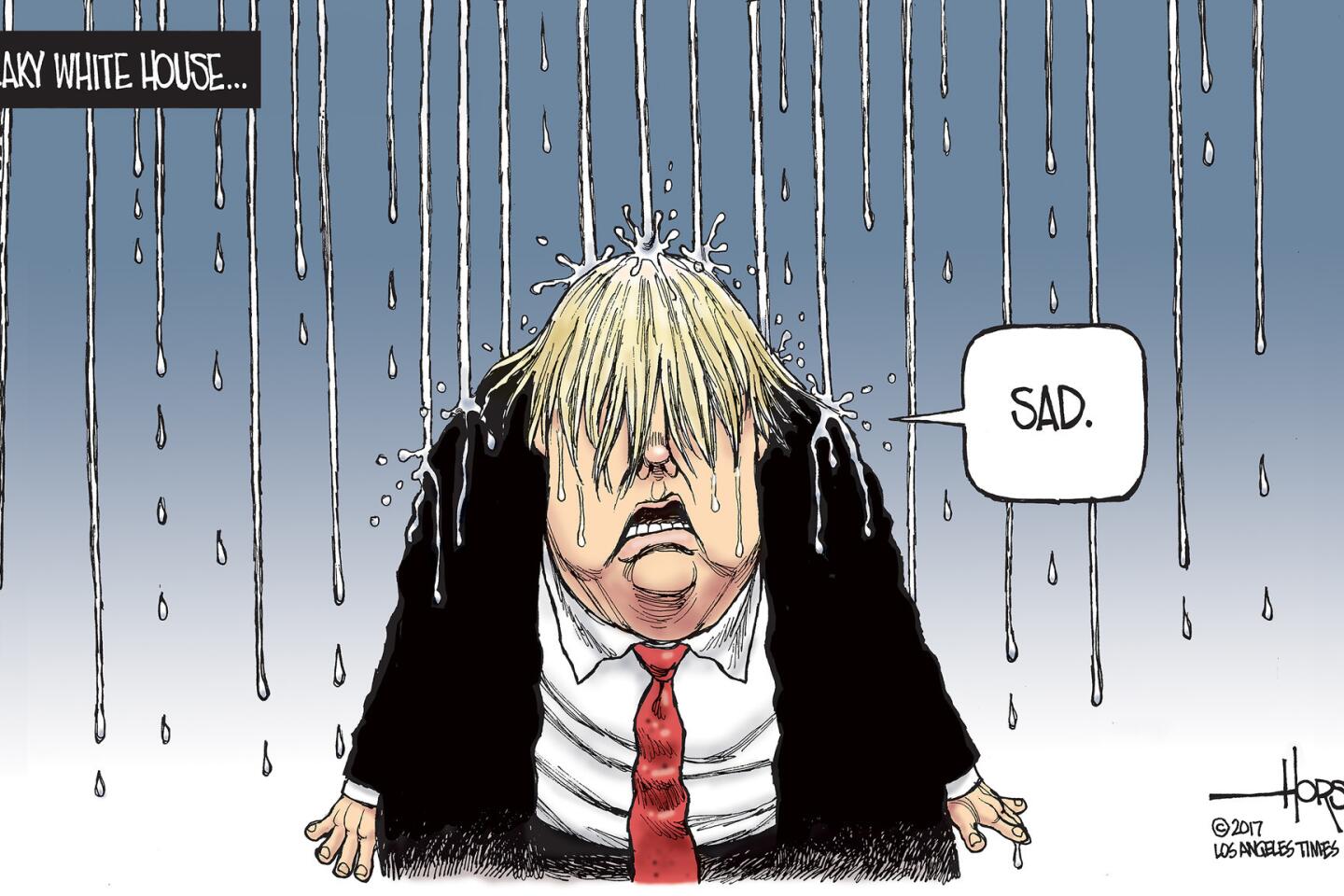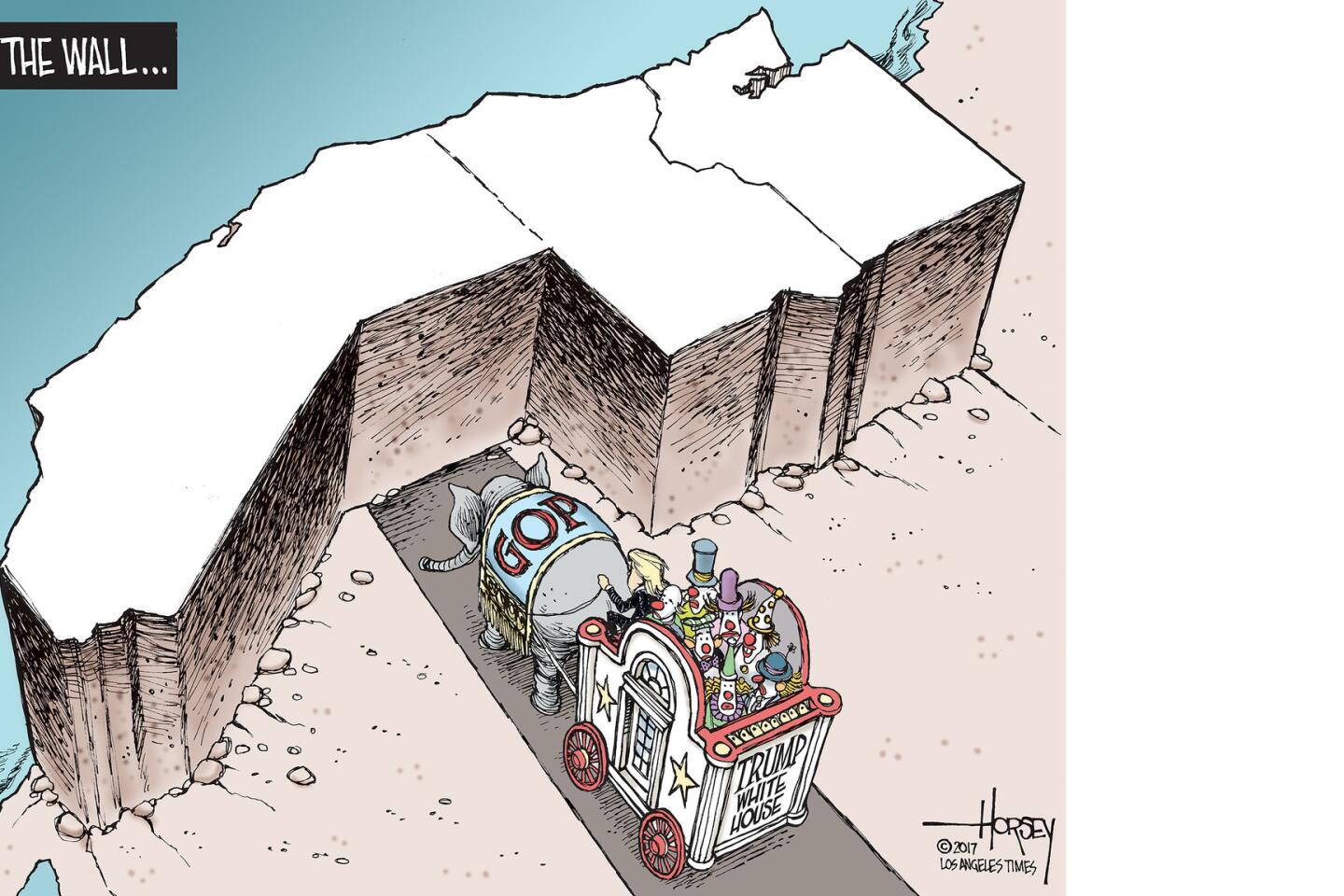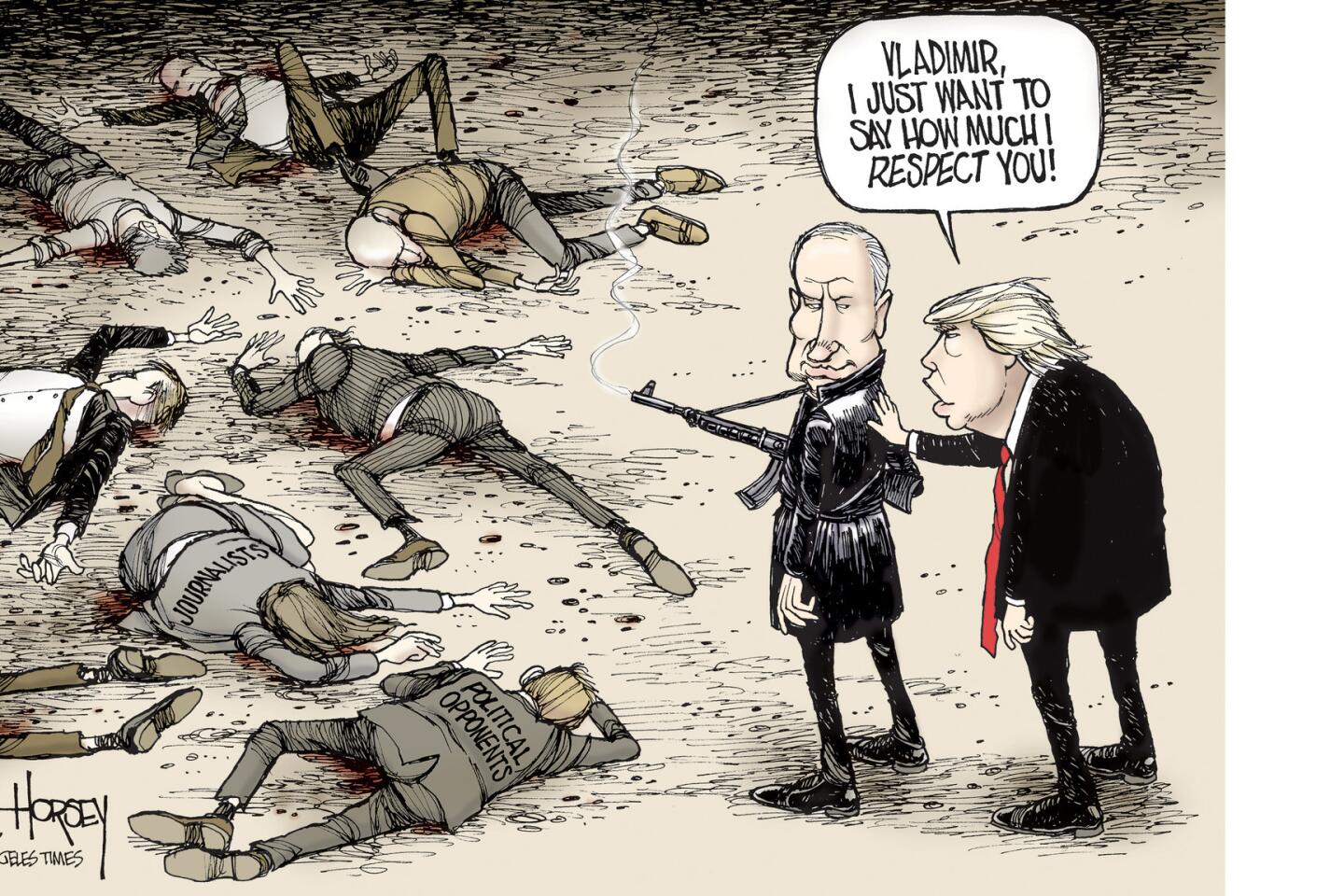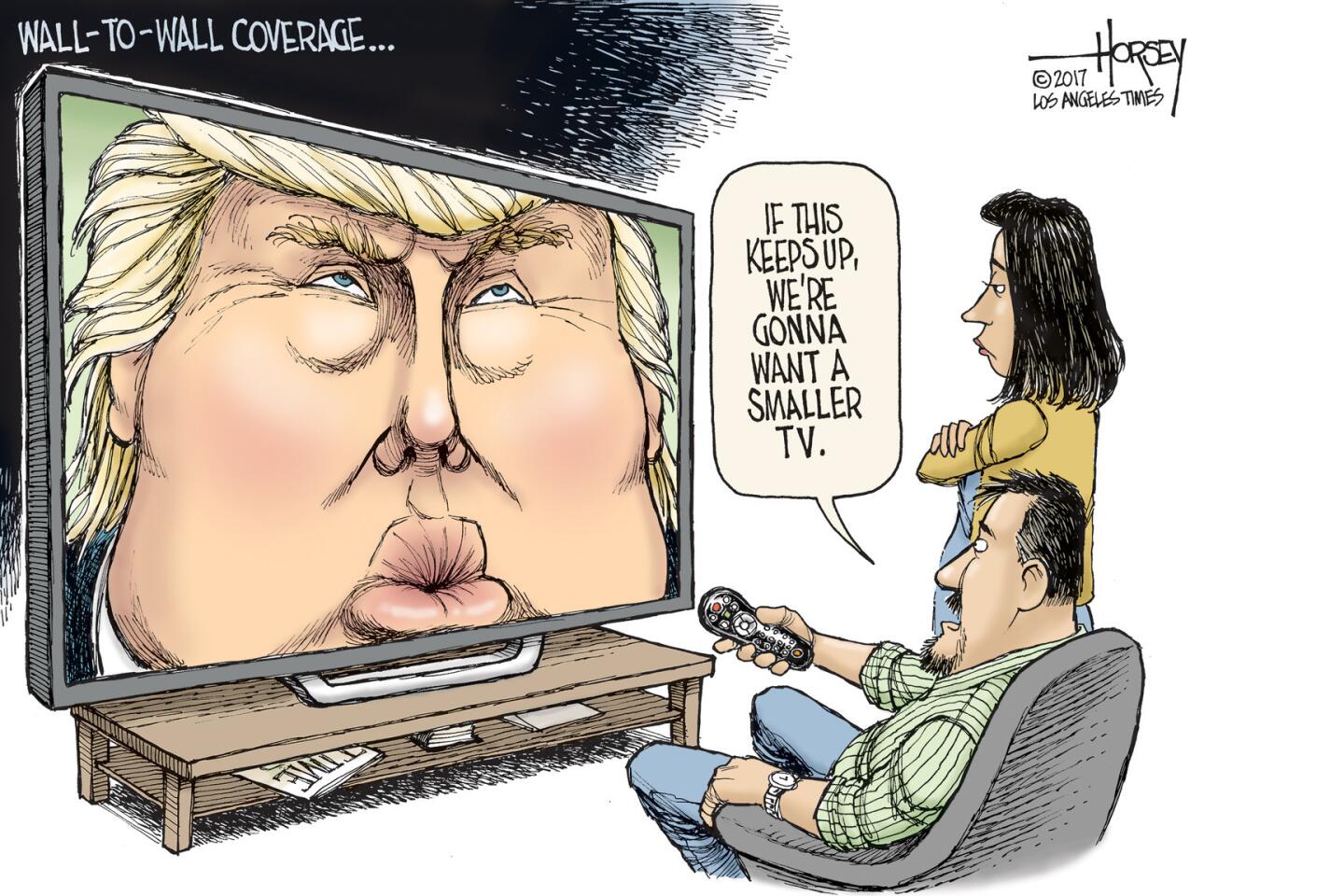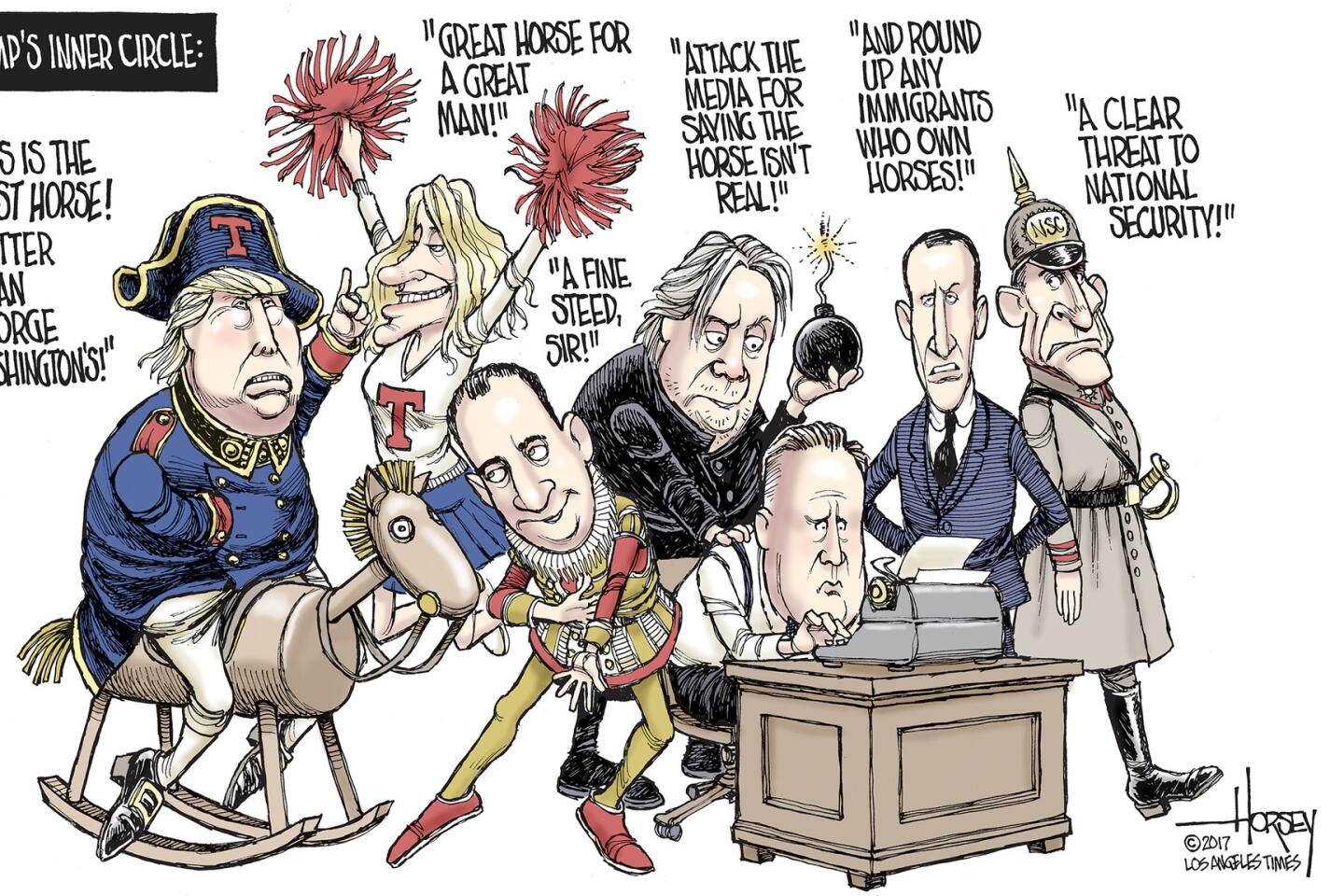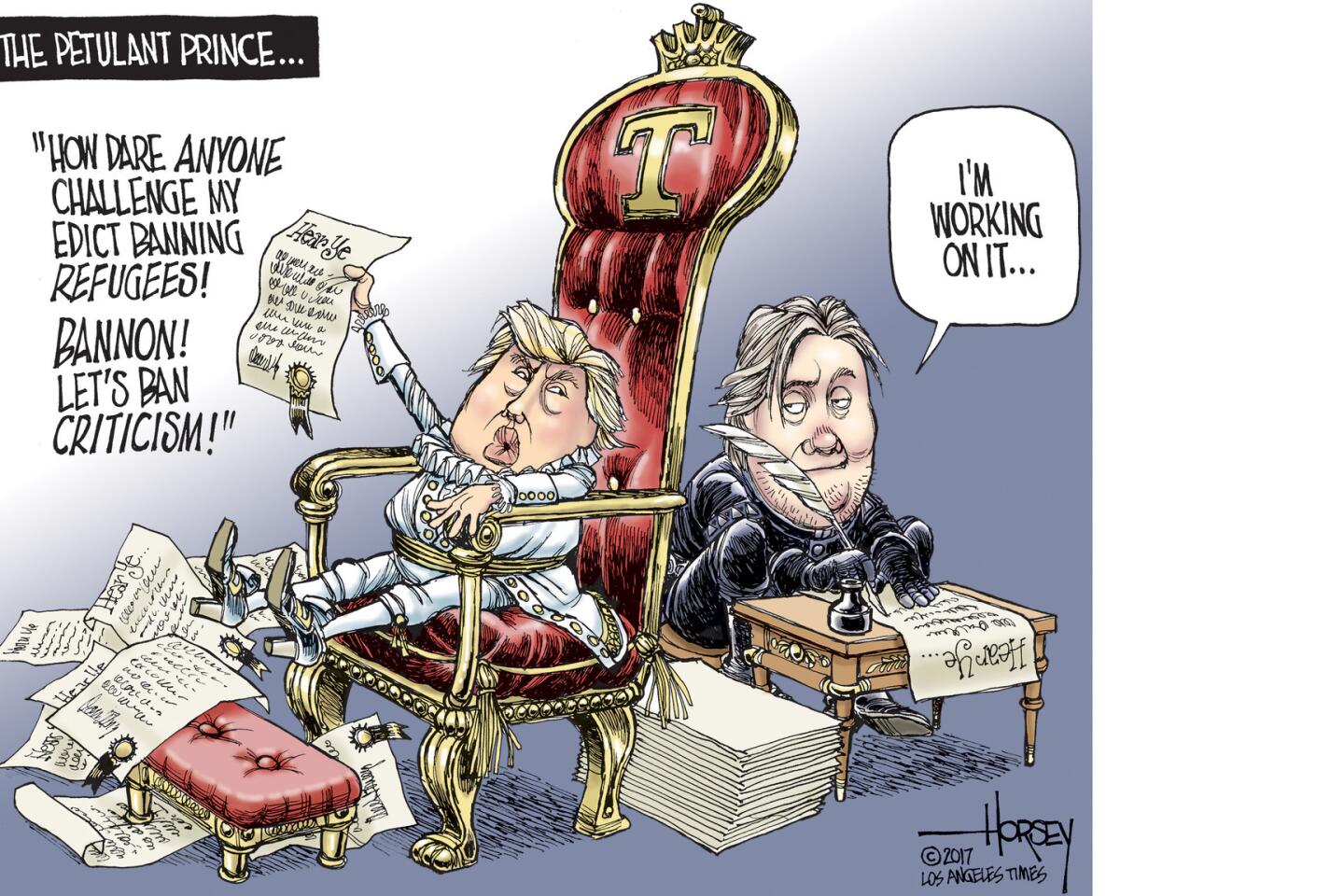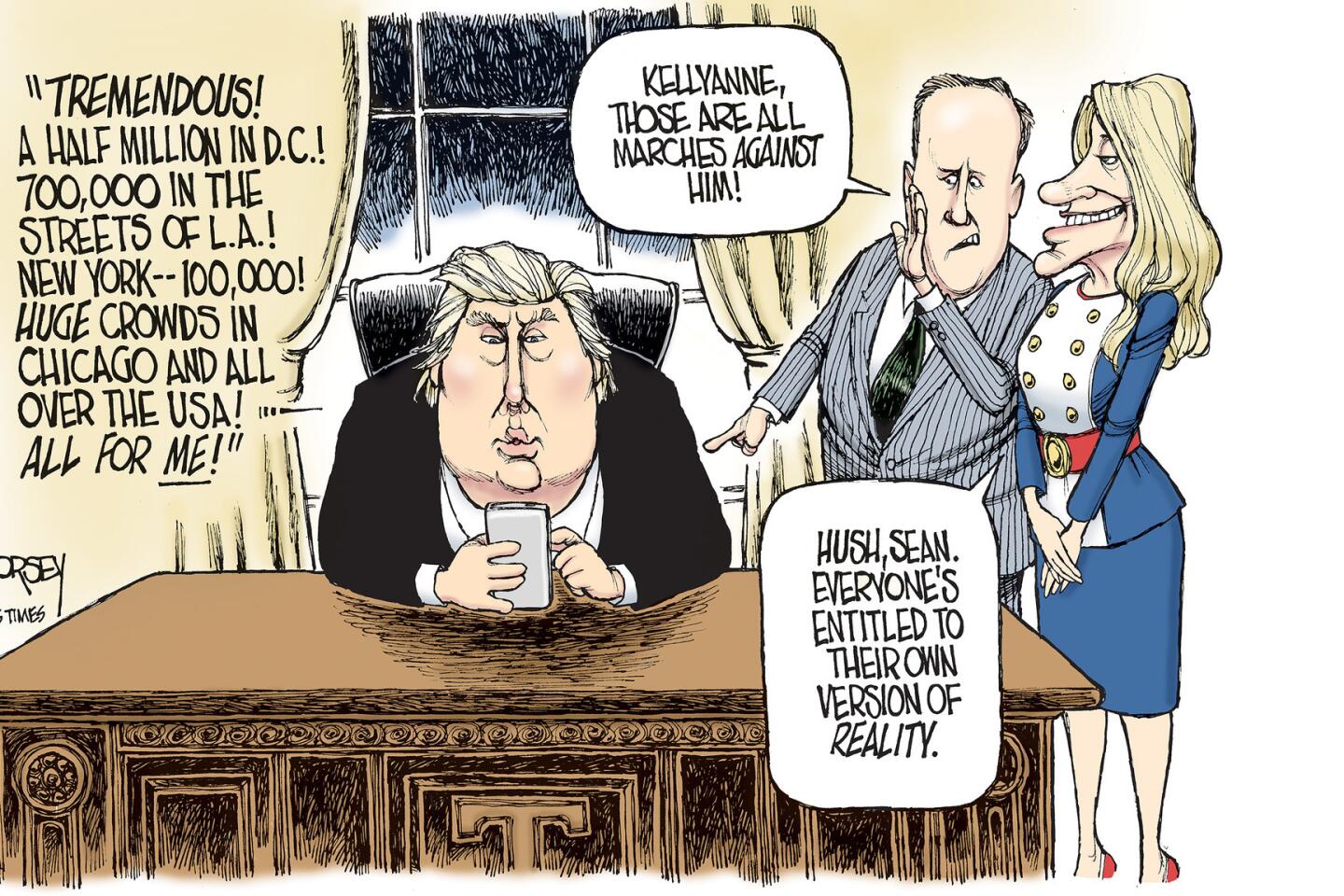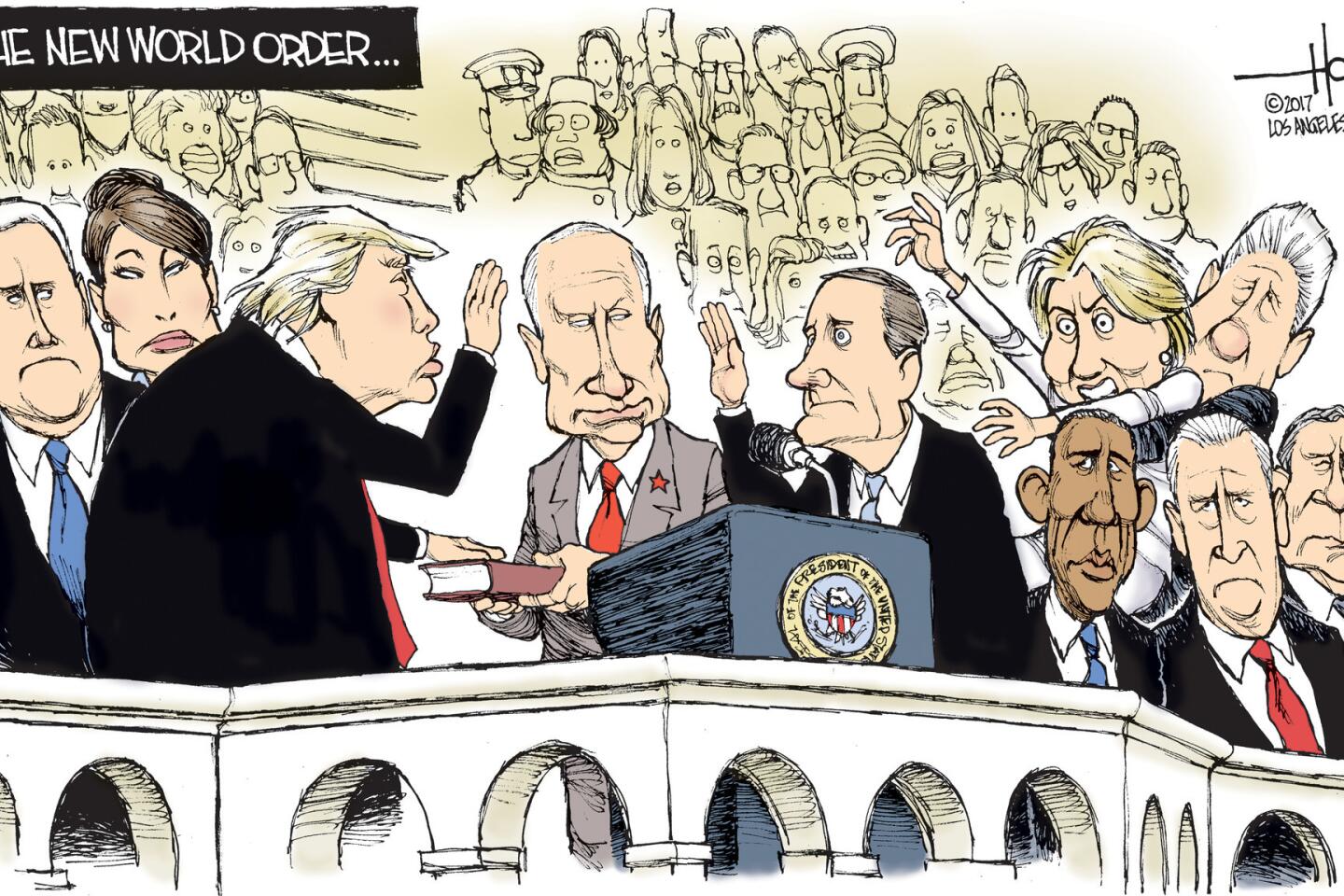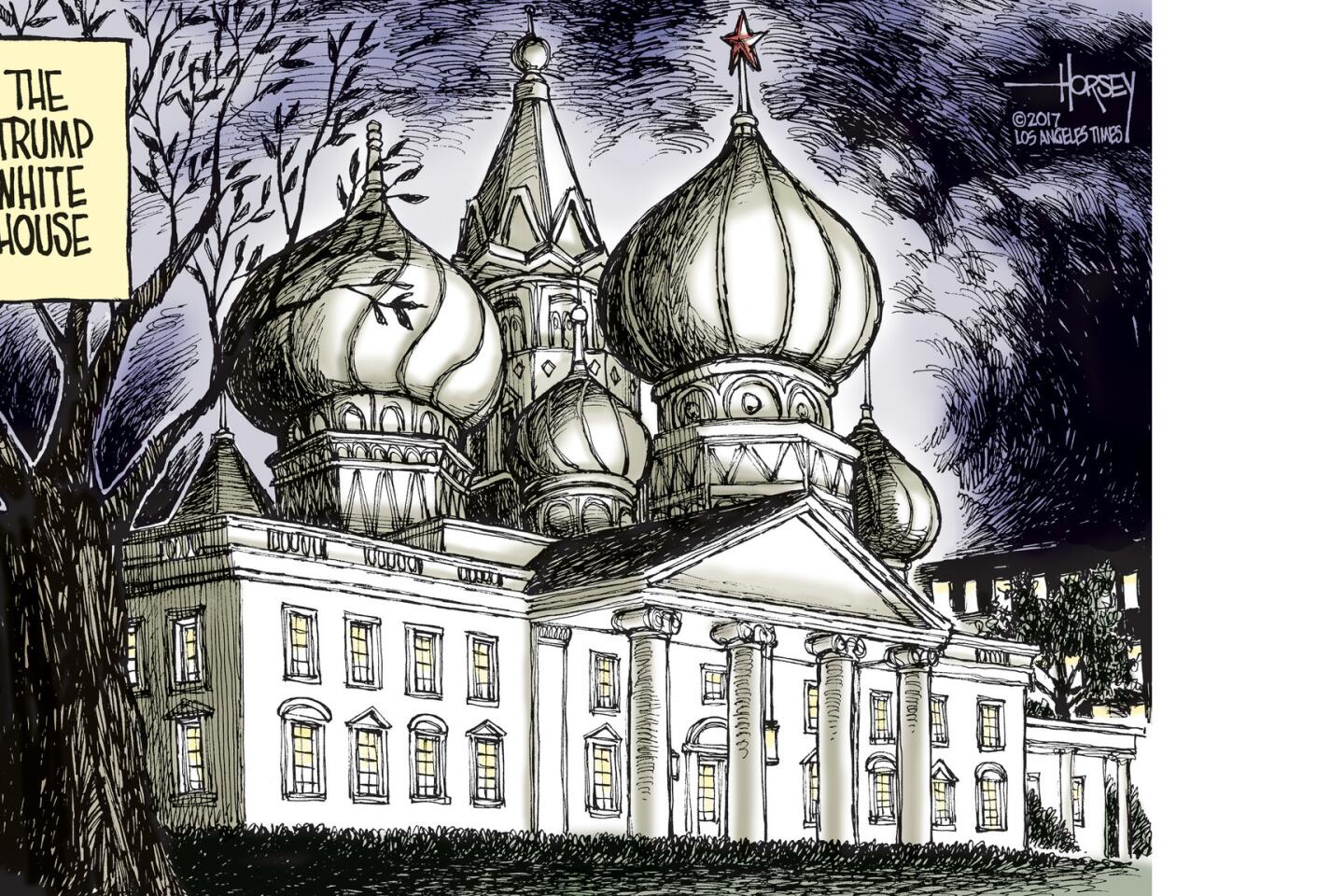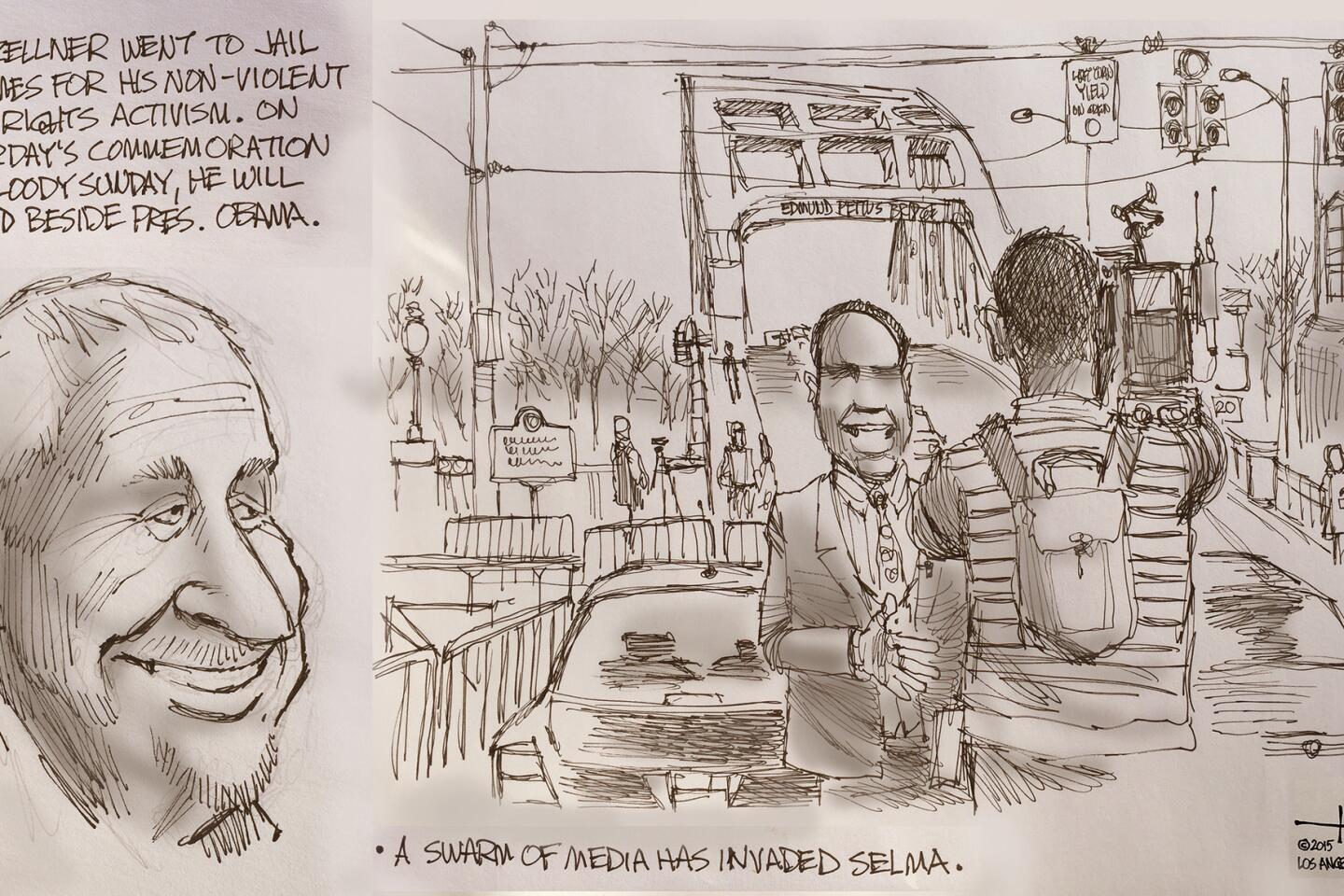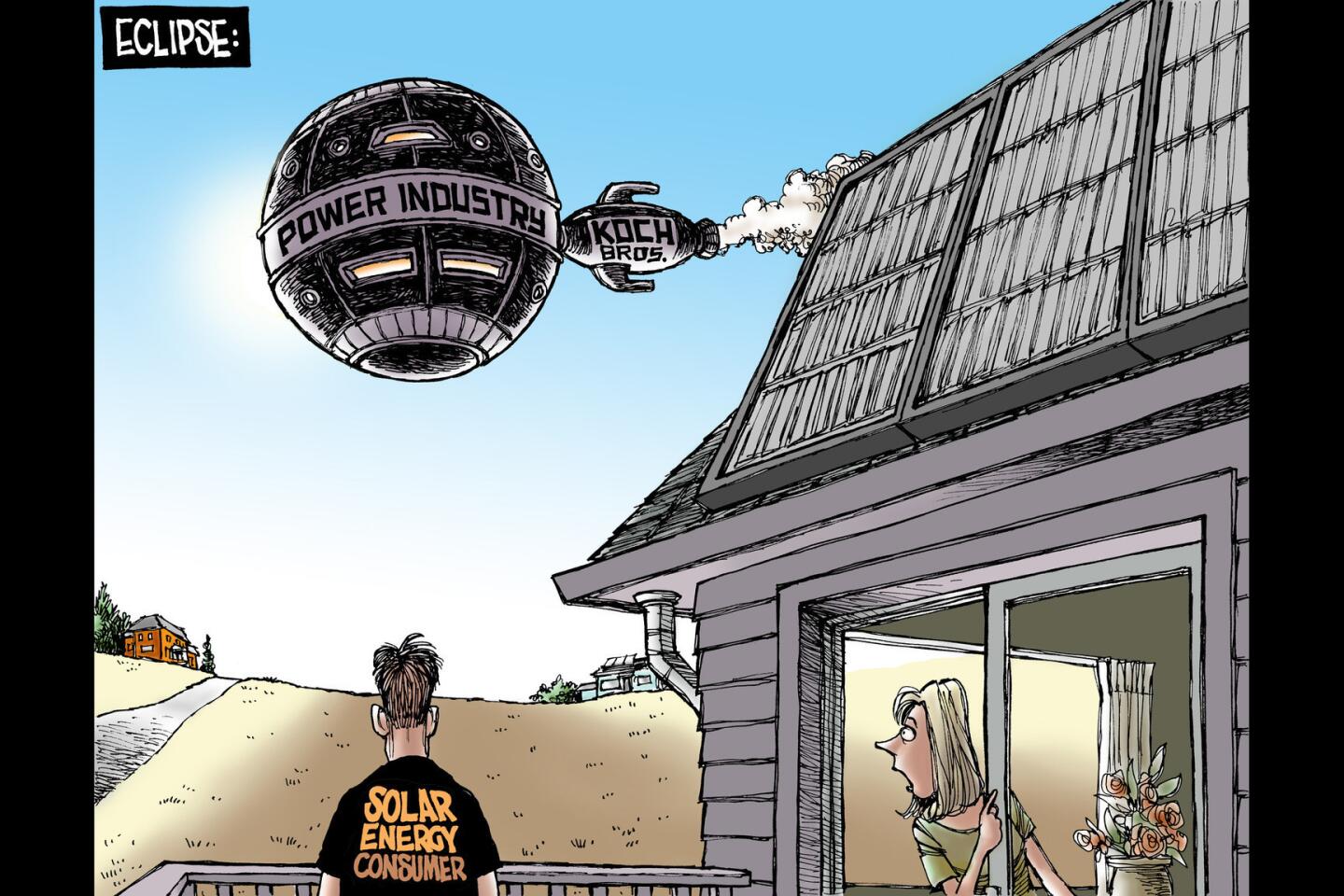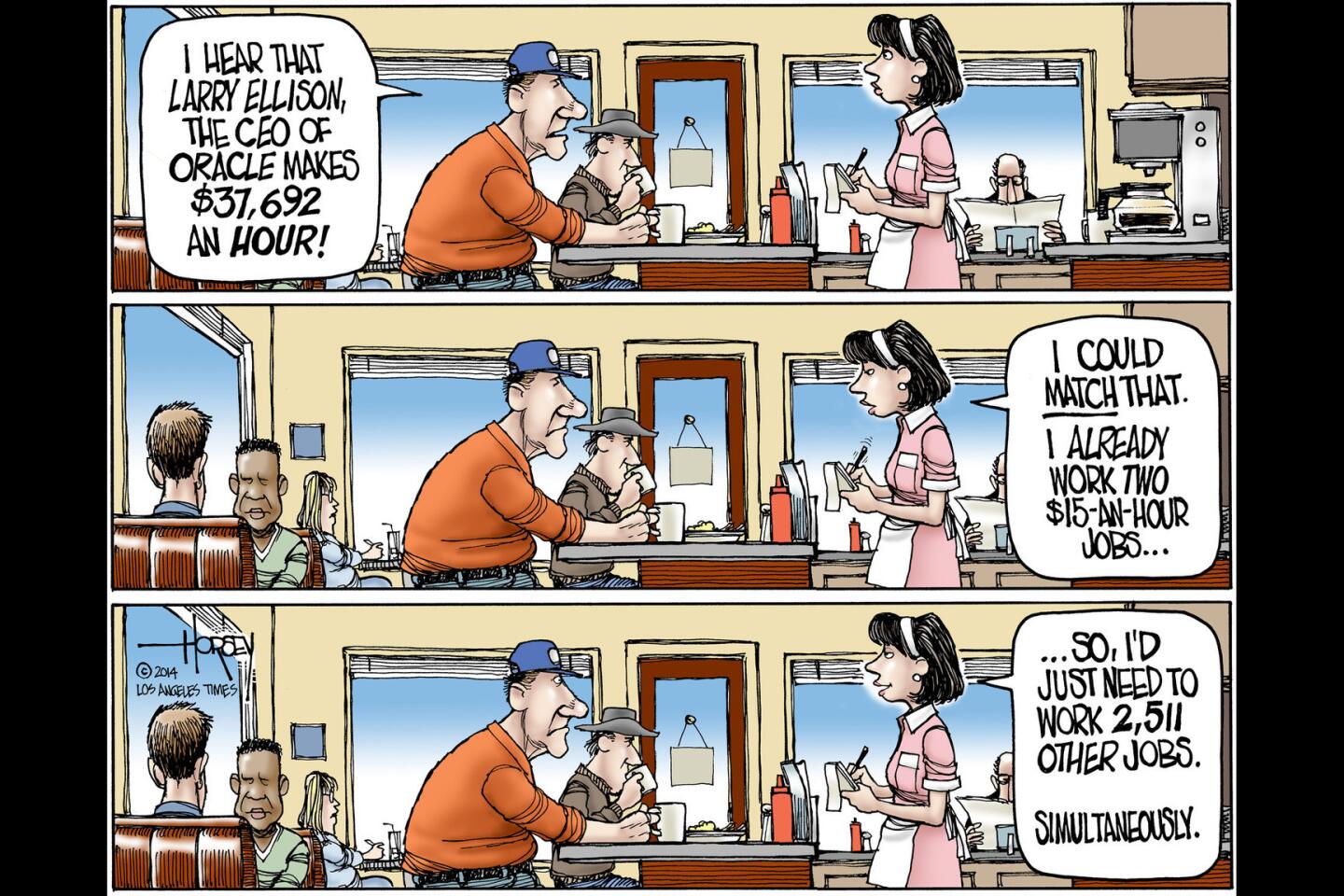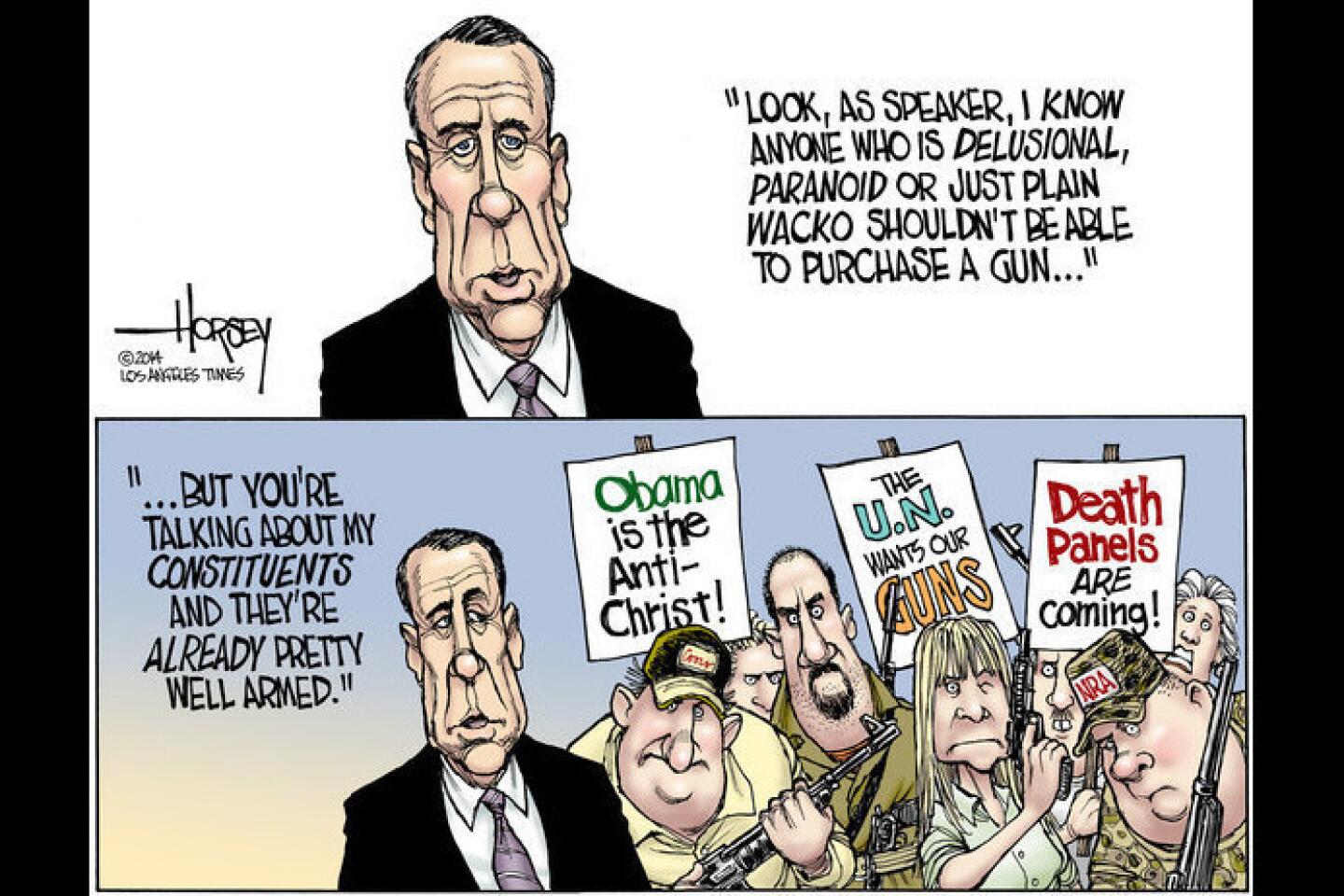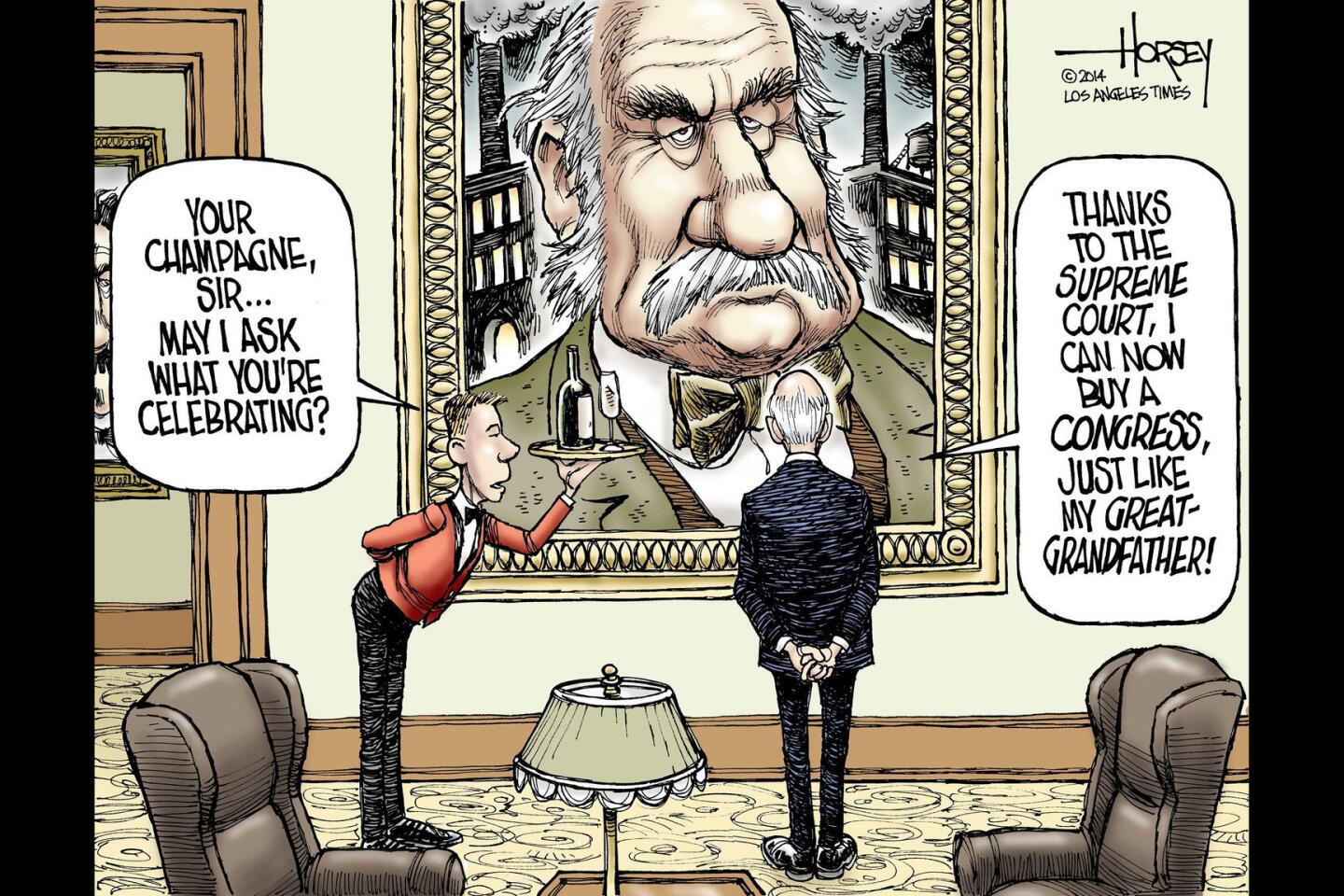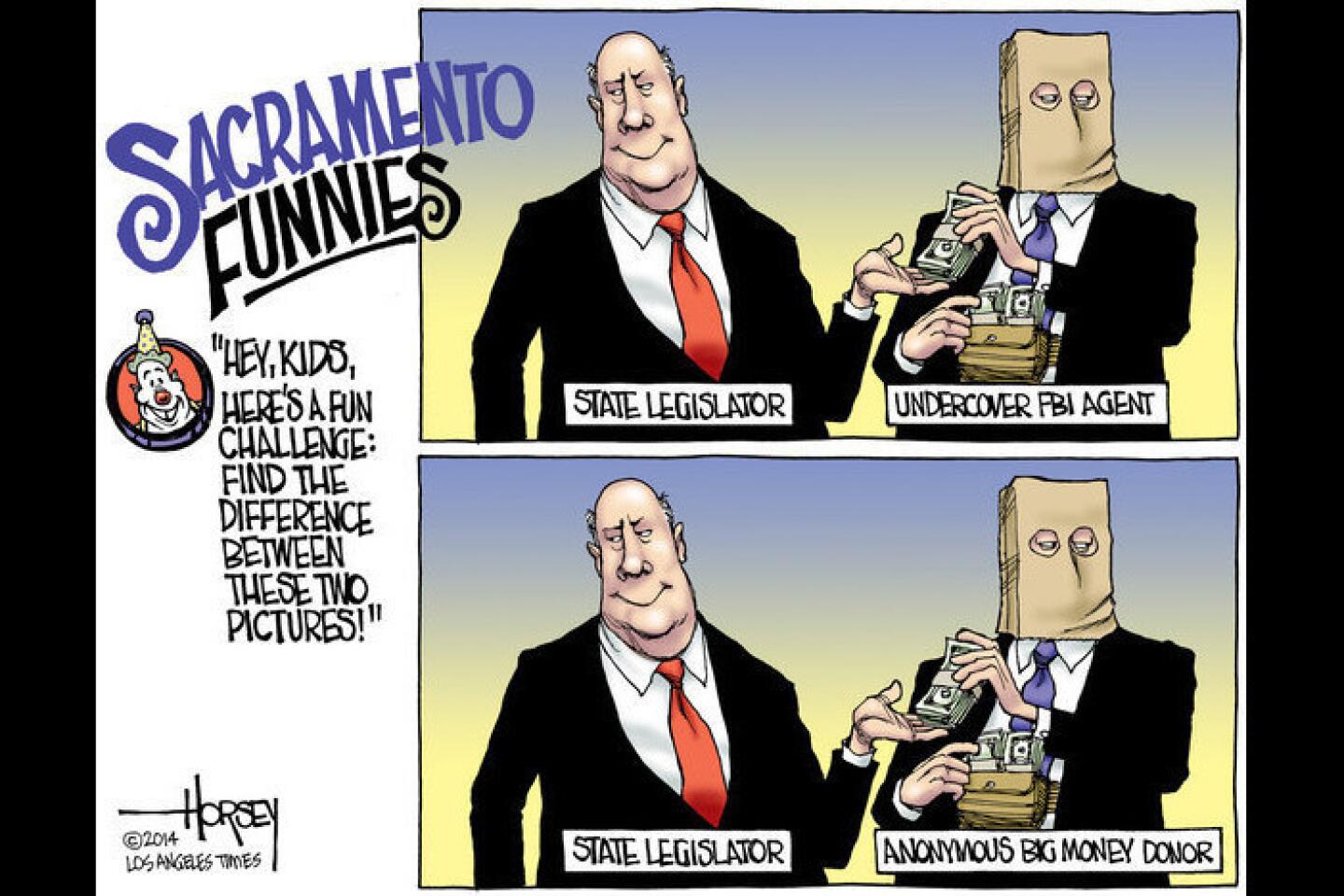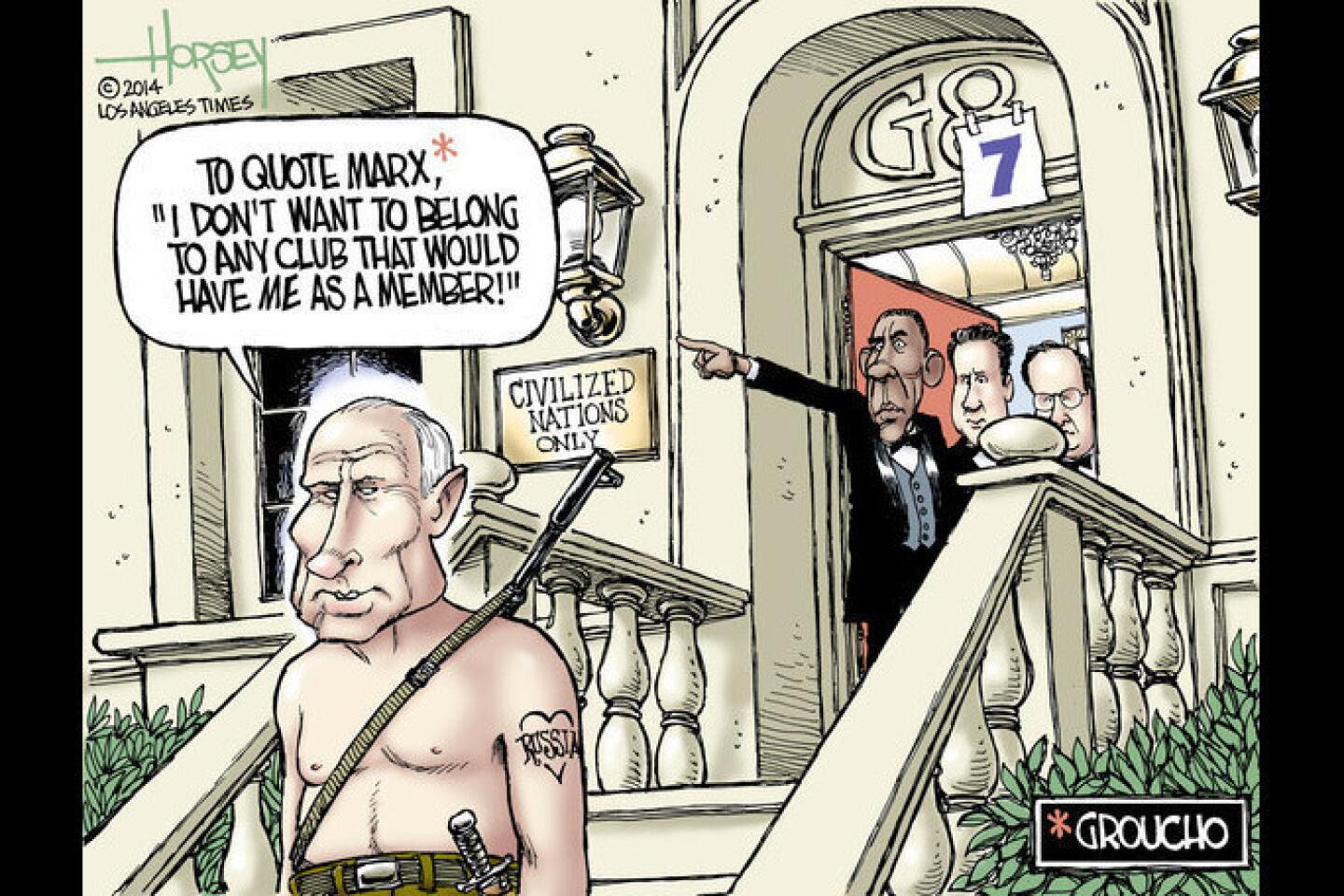Trump’s missile attack on Syria did not spring from a coherent policy

- Share via
Friday afternoon at the northeast corner of Pershing Square in downtown Los Angeles, scores of leftist protesters gathered to speak out against American military intervention in Syria. At the same hour, Twitter and Facebook were being lit up by angry folks at the other end of the political spectrum, so-called alt right supporters of President Trump, who had pretty much the same message: stay out of Syria.
In Washington, meanwhile, Republican hawks, such as Sens. John McCain, Lindsey Graham and Marco Rubio, were reacting very differently. Trump had finally done something they could applaud; he had ordered an attack on a Syrian air base from which, the Pentagon said, Syrian dictator Bashar Assad’s air force had launched a heinous chemical weapons attack on innocent civilians.
It is hard to keep track of the various players in the Syrian civil war — Assad’s Alawite Muslim government, his Russian and Iranian allies, his Turkish and Saudi enemies, multiple groups of anti-Assad Sunni Muslim rebels, plus Islamic State terrorists. But the situation is nearly as convoluted in the American debate over Syria. It is not just that those opposing U.S. military action come from both the right and the left or that those who favor the use of force include both Republicans and Democrats. The confusion extends right into the president’s mind.
Trump has been on both sides of the issue. Back in 2013 when another president was contemplating military action against the Assad regime after a chemical weapons strike that took more than 1,400 lives, citizen Trump sent out a flood of tweets warning President Obama against attacking Syria. As a presidential candidate and in his first weeks as president, Trump’s public comments made it clear he was willing to leave Assad in power and let the Russians take the lead in sorting things out. Then, last week, confronted with horrific photographs of the many children who were victims of the chemical weapons assault, Trump changed his tune and unleashed a barrage of avenging cruise missiles.
Only days before, Trump’s secretary of State, Rex Tillerson, had raised a lot of eyebrows by saying the fate of Assad and Syria was up to the Syrian people, as if the beaten-down, oppressed Syrians could somehow magically be given the opportunity to decide their own fate. After the chemical attack, though, U.S. Ambassador to the United Nations Nikki Haley declared that Washington is prepared to take more robust action against Assad.
Inside the White House, Syrian policy is further skewed by the philosophical dissonance between national security advisor H.R. McMaster and senior political advisor Steven Bannon. Lt. Gen. McMaster is a highly regarded military strategist with many fans among the neoconservatives who backed the wars in Afghanistan and Iraq and who cheered the missile strike on the Syrian base. Bannon is a hyper-nationalist who loathes “globalists” and wants Trump to avoid the web of international commitments that drag Americans into overseas conflicts. He is a hero to the alt right isolationists who feel betrayed by Trump’s sudden shift to the use of force.
Conventional wisdom would say the Syria strike clearly moves Trump away from Bannon and toward McMaster, from the hands-off policy enunciated by Tillerson to the deeper engagement implicit in the assertive speech Haley gave at the U.N. However, there is little that is conventional about Trump. He flips political positions just as easily as he switched from launching Tomahawk missiles on Thursday to whacking golf balls at Mar-a-Lago on Saturday. The protesters in Pershing Square can take a deep breath before their next antiwar chant. There is no definitive Trump position on Syria, yet.
The missile strike certainly changed the conversation, but it did not change much on the ground. Syrian jets were taking off from the runway at the targeted base only hours after the surrounding buildings had been blown up. Does that mean the retaliation was pointless or too little or too much? Or is it just more proof that there are really no good options for the U.S. amid the insidious complexities of the Syrian mess? Even a reasonably coherent policy such as that formulated by the Obama administration proved inadequate in the face of Assad’s ruthlessness and Russian duplicity.
Coherence is not something to expect from the Trump crew until they can figure out how to speak with one voice. And that may be tough to achieve with a president whose actions are driven by the last person he talked to or the last awful picture he saw on TV.
Follow me at @davidhorsey on Twitter
More to Read
A cure for the common opinion
Get thought-provoking perspectives with our weekly newsletter.
You may occasionally receive promotional content from the Los Angeles Times.

